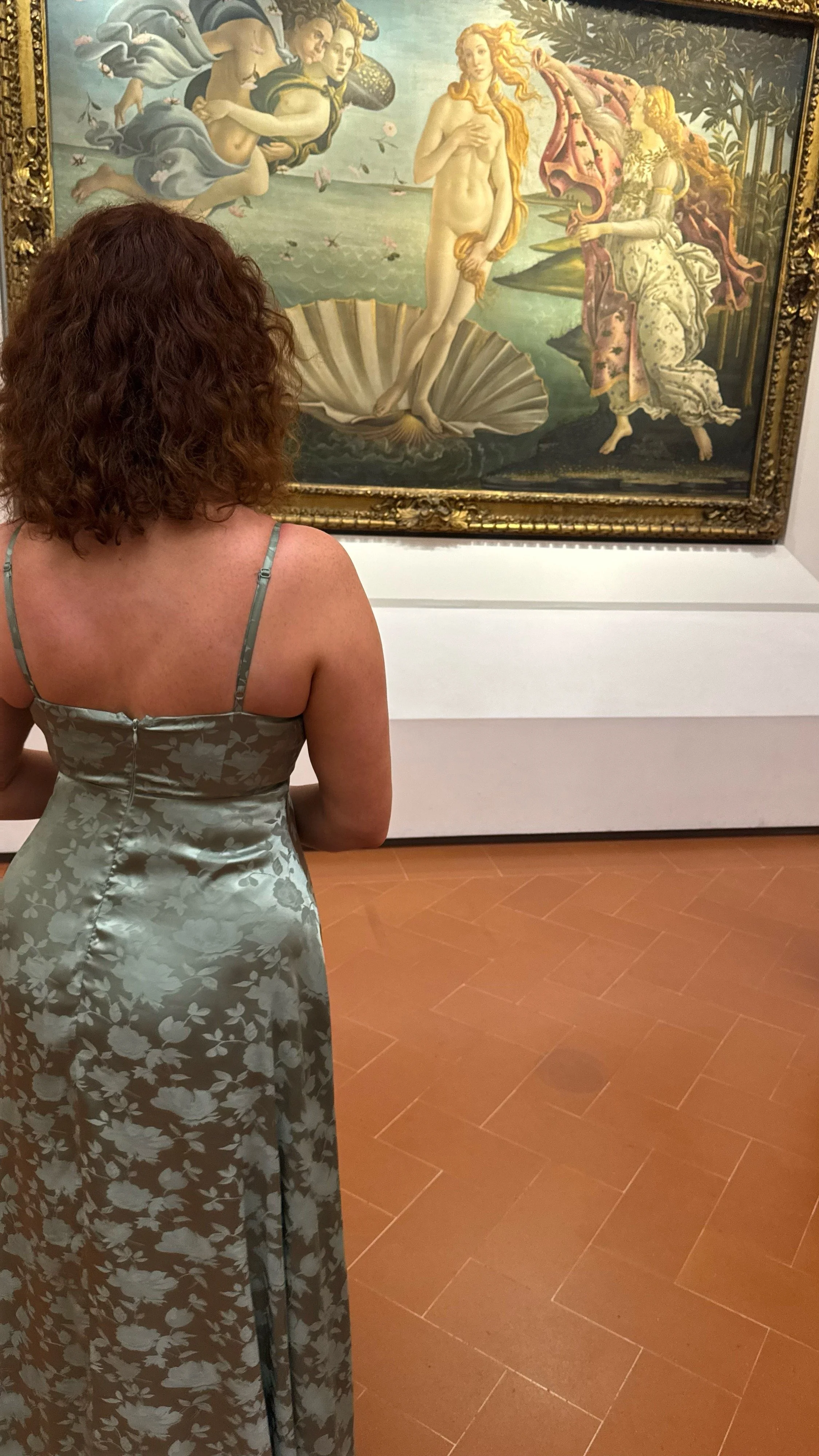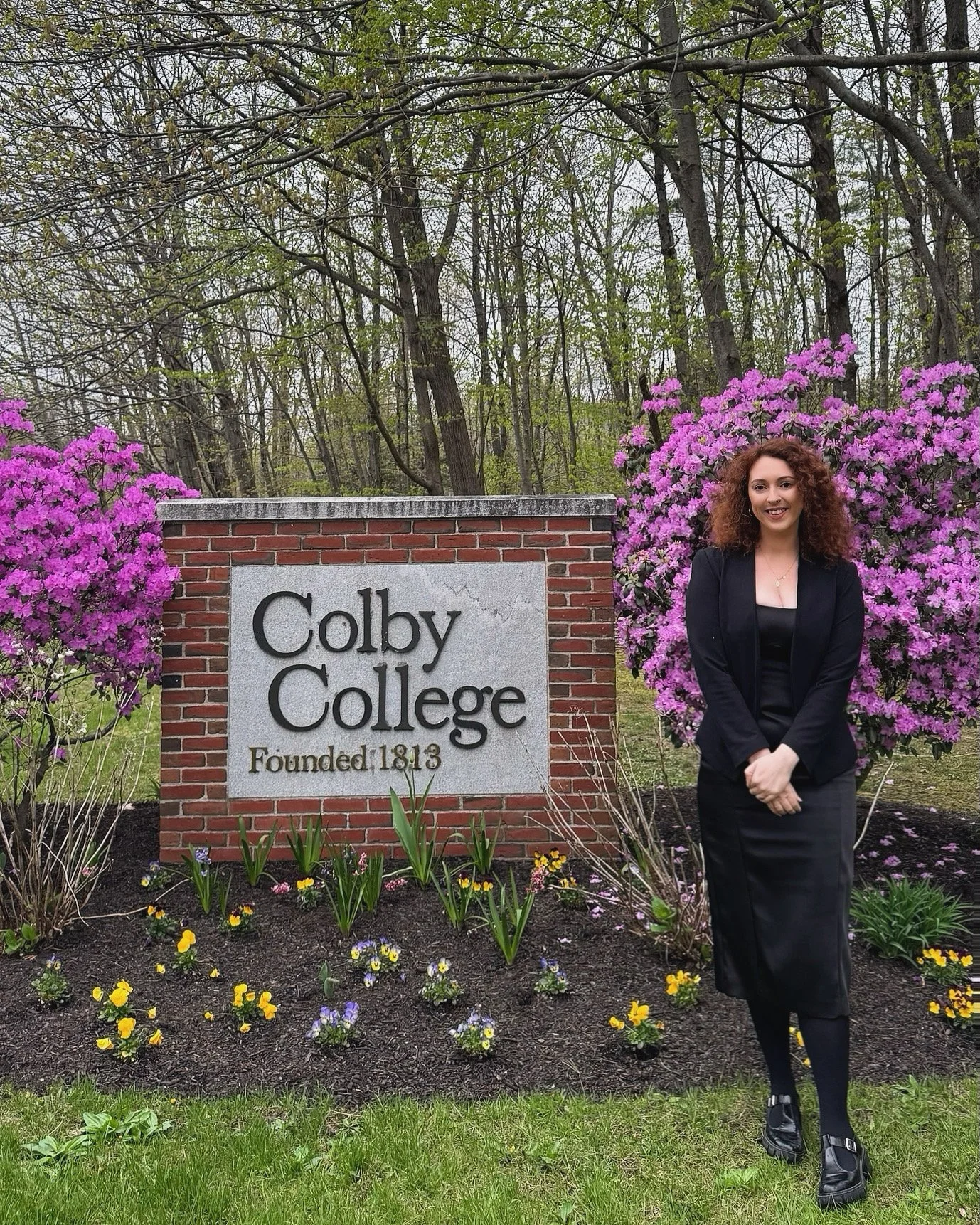Grace Bernadette McGowan
Visiting Assistant Professor of English at Colby College
Grace McGowan is a Visiting Assistant Professor of English at Colby College where she specializes in American literature of the 20th and 21st century with a particular focus on African American literature.
She received her PhD from Boston University in the American Studies Program in 2024. She took her undergraduate degree in English Language and Literature from University of Oxford in 2017. Her work explores how Black women writers use the classical tradition from Ancient Greece and Rome in their writing, specifically iterations of the “Black Venus". Her article “I Know I Can’t Change the Future, But I Can Change the Past: Toni Morrison, Robin Coste Lewis, and the Classical Tradition” was published in Contemporary Women’s Writing under OUP in 2020. Her article "In 'Rumors', Lizzo and Cardi B Pull From the Ancient Greeks, Putting a New Spin on an Old Tradition" was published in both The Conversation and The Boston Globe and has reached a readership of approximately a million people.
Grace was awarded the Helen G. Allen Humanities Award and the Angela J. and James J. Rallis Memorial Award from Boston University for her dissertation work in the humanities. Her work on Phillis Wheatley Peters was awarded an honorable mention for the Mary Kelley prize under the New England American Studies Association. She completed an internship with the Massachusetts Historical Society in which she created educational resources for researchers, students, and educators on Phillis Wheatley Peters. Grace was awarded the Women's Council New England Women's College Award for her work in gender studies and served as the Center for the Humanities Dissertation Fellow in 2024.
At Colby she has been teaching classes on Toni Morrison, African American Women’s Writing, Literature of the Urban and Rural, and Race in the Modern American Novel. In the coming year she will be teaching classes on James Baldwin, Audre Lorde, the African American Gothic, as well as her introduction to writing class “Writing as a Fan.”
“Venus Worked in Bronze”: African-American Women Writers and Classical Beauty Myths
Grace’s current book project, “Venus Worked in Bronze: African American Women Writers and Classical Beauty Myths” argues that Black women have reclaimed the figure of Venus in ways that have influenced and critiqued American beauty culture. It combines literary analysis, classical reception theory, material culture approaches, and Black feminist thought to illustrate the pivotal role Black women’s artistic and cultural production has played in shaping and critiquing American classicism and beauty culture.
It specifically centers and interrogates iterations of the Black Venus as she appears in African American women's artistic and cultural production. By examining when and where Black Venus appears it meditates on what it means to be beautiful in America. This book argues that the classical tradition influences and dominates all American beauty standards – in the realms of art, beauty, and the living body and by adopting a Black feminist lens and applying it to classical representations of myth, the white supremacist cooption of the classical tradition and its racist repercussions for American ideals of aesthetics and beauty can be better interrogated.
Beauty discourse is disseminated through the media of the visual, the material, and the textual, and so the project is necessarily interdisciplinary. Not just concerned with literature in the forms of poetry, novels, and essays, the chapters interrogate sculpture, art, advertisements, films, music videos, lotion bottles, hair combs, dolls, postcards, and cosmetics palettes.
Literary case studies include Phillis Wheatley Peters, Sarah Baartman, Pauline Hopkins, Josephine Baker, Lena Horne, Toni Morrison, Robin Coste Lewis, and Beyoncé.
Grace’s Latest & Upcoming Publications
Peer-Reviewed
Interested in Grace’s Open Access Work?
-
-
-
Remixing American History and Culture






